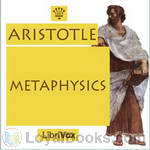|
Books Should Be Free Loyal Books Free Public Domain Audiobooks & eBook Downloads |
|
|
Books Should Be Free Loyal Books Free Public Domain Audiobooks & eBook Downloads |
|
Philosophy Books |
|---|
|
Book type:
Sort by:
View by:
|
By: Samuel R. (Samuel Roberts) Wells (1820-1875) | |
|---|---|
 How To Behave: A Pocket Manual Of Republican Etiquette
How To Behave: A Pocket Manual Of Republican Etiquette
| |
By: Joseph Butler (1692-1752) | |
|---|---|
 Human Nature and Other Sermons
Human Nature and Other Sermons
| |
By: Jane Ellen Harrison (1850-1928) | |
|---|---|
 Ancient Art and Ritual
Ancient Art and Ritual
| |
By: William Crosbie Hunter (1866-) | |
|---|---|
 Evening Round Up More Good Stuff Like Pep
Evening Round Up More Good Stuff Like Pep
| |
By: Alfred R. Calhoun (1844-) | |
|---|---|
 How to Get on in the World A Ladder to Practical Success
How to Get on in the World A Ladder to Practical Success
| |
By: Bernard Mandeville (1670-1733?) | |
|---|---|
 An Enquiry into an Origin of Honour; and the Usefulness of Christianity in War
An Enquiry into an Origin of Honour; and the Usefulness of Christianity in War
| |
 A Letter to Dion
A Letter to Dion
| |
By: Max Pearson Cushing (1886-1951) | |
|---|---|
 Baron D'Holbach : a Study of Eighteenth Century Radicalism in France
Baron D'Holbach : a Study of Eighteenth Century Radicalism in France
| |
By: William Jennings Bryan (1860-1925) | |
|---|---|
 The Price of a Soul
The Price of a Soul
| |
By: R. B. (Roscoe Burdette) Tobias (1880-) | |
|---|---|
 Women As Sex Vendors or, Why Women Are Conservative (Being a View of the Economic Status of Woman)
Women As Sex Vendors or, Why Women Are Conservative (Being a View of the Economic Status of Woman)
| |
By: Bertrand Edward Dawson Dawson (1864-1945) | |
|---|---|
 Love—Marriage—Birth Control Being a Speech delivered at the Church Congress at Birmingham, October, 1921
Love—Marriage—Birth Control Being a Speech delivered at the Church Congress at Birmingham, October, 1921
| |
By: Newell Dwight Hillis (1858-1929) | |
|---|---|
 The Investment of Influence A Study of Social Sympathy and Service
The Investment of Influence A Study of Social Sympathy and Service
| |
By: Hastings Rashdall (1858-1924) | |
|---|---|
 Philosophy and Religion Six Lectures Delivered at Cambridge
Philosophy and Religion Six Lectures Delivered at Cambridge
| |
By: John Abercrombie (1780-1844) | |
|---|---|
 The Philosophy of the Moral Feelings
The Philosophy of the Moral Feelings
| |
By: Mary Greer Conklin | |
|---|---|
 Conversation What to Say and How to Say it
Conversation What to Say and How to Say it
| |
By: Maud C. Cooke | |
|---|---|
 Social Life or, The Manners and Customs of Polite Society
Social Life or, The Manners and Customs of Polite Society
| |
By: B. F. (Benjamin Franklin) Cocker (1821-1883) | |
|---|---|
 Christianity and Greek Philosophy or, the relation between spontaneous and reflective thought in Greece and the positive teaching of Christ and His Apostles
Christianity and Greek Philosophy or, the relation between spontaneous and reflective thought in Greece and the positive teaching of Christ and His Apostles
| |
By: Ralph Parlette (1870-1930) | |
|---|---|
 The University of Hard Knocks
The University of Hard Knocks
| |
By: William H. (William Howard) Taft (1857-1930) | |
|---|---|
 Ethics in Service
Ethics in Service
| |
By: Alexander Bain (1818-1903) | |
|---|---|
 Practical Essays
Practical Essays
| |
By: Charles Wagner (1852-1916) | |
|---|---|
 The Simple Life
The Simple Life
| |
By: John Alexander Gunn (1896-1975) | |
|---|---|
 Modern French Philosophy: a Study of the Development Since Comte
Modern French Philosophy: a Study of the Development Since Comte
| |
By: Walter Germain | |
|---|---|
 The Complete Bachelor Manners for Men
The Complete Bachelor Manners for Men
| |
By: Johannes Henricus Scholten (1811-1885) | |
|---|---|
 A Comparative View of Religions
A Comparative View of Religions
| |
By: Nella Braddy Henney (1894-) | |
|---|---|
 The Book of Business Etiquette
The Book of Business Etiquette
| |
By: Frank B. Anderson (1863-1935) | |
|---|---|
 Morals in Trade and Commerce
Morals in Trade and Commerce
| |
By: Charles Coppens (1835-1920) | |
|---|---|
 Moral Principles and Medical Practice The Basis of Medical Jurisprudence
Moral Principles and Medical Practice The Basis of Medical Jurisprudence
| |
By: William Edward Hartpole Lecky (1838-1903) | |
|---|---|
 The Map of Life Conduct and Character
The Map of Life Conduct and Character
| |
By: L. W. Rogers (1859-1953) | |
|---|---|
 Elementary Theosophy
Elementary Theosophy
This book provides the basics of Theosophy and perhaps the beginning of a life long journey. Theosophy comes from the ancient wisdom that man and nature are as inseparable from the universe as the universe is inseparable from man and nature. It is a science and a philosophy, not a religion which depends on (dogma) faith. Knowledge gained through the study of Theosophy comes from the understanding of natural laws and harmony of the universe. Rogers shows us why we cannot separate ourselves from God (universe); the evolution of the soul; rebirth after physical death; why we don’t remember past lives and much more... | |
By: Edouard Louis Emmanuel Julien Le Roy (1870-1954) | |
|---|---|
 A New Philosophy: Henri Bergson
A New Philosophy: Henri Bergson
| |
By: G. S. (George Sumner) Weaver (1818-1908) | |
|---|---|
 Aims and Aids for Girls and Young Women On the Various Duties of Life, Physical, Intellectual, And Moral Development
Aims and Aids for Girls and Young Women On the Various Duties of Life, Physical, Intellectual, And Moral Development
| |
By: Margaret Slattery | |
|---|---|
 The Girl and Her Religion
The Girl and Her Religion
| |
By: Roger Ascham (1515-1568) | |
|---|---|
 The Schoolmaster
The Schoolmaster
| |
By: Isaac Husik (1876-1939) | |
|---|---|
 A History of Mediaeval Jewish Philosophy
A History of Mediaeval Jewish Philosophy
| |
By: Walter Rauschenbusch (1861-1918) | |
|---|---|
 The Social Principles of Jesus
The Social Principles of Jesus
| |
By: John Tulloch (1823-1886) | |
|---|---|
 Pascal
Pascal
| |
By: Agnes H. Morton | |
|---|---|
 Etiquette
Etiquette
| |
By: William Thomas Thornton (1813-1880) | |
|---|---|
 Old-Fashioned Ethics and Common-Sense Metaphysics With Some of Their Applications
Old-Fashioned Ethics and Common-Sense Metaphysics With Some of Their Applications
| |
By: Henry Frederick Cope (1870-1923) | |
|---|---|
 Levels of Living Essays on Everyday Ideals
Levels of Living Essays on Everyday Ideals
| |
By: Jesse Lynch Williams (1871-1929) | |
|---|---|
 Why Marry?
Why Marry?
Why Marry? is a comedy, which "tells the truth about marriage". We find a family in the throes of proving the morality of marriage to a New Age Woman. Can the family defend marriage to this self-supporting girl? Will she be convinced that marriage is the ultimate sacredness of a relationship or will she hold to her perception that marriage is the basis of separating two lovers."Why Marry?" won the first Pulitzer Prize for Drama. | |
By: John McGovern (1850-1917) | |
|---|---|
 The Golden Censer Or, the duties of to-day, the hopes of the future
The Golden Censer Or, the duties of to-day, the hopes of the future
| |
By: George Herbert Palmer (1842-1933) | |
|---|---|
 The Nature of Goodness
The Nature of Goodness
| |
By: American lady | |
|---|---|
 The Ladies' Vase Or, Polite Manual for Young Ladies
The Ladies' Vase Or, Polite Manual for Young Ladies
| |
By: Albert Shaw (1857-1947) | |
|---|---|
 The business career in its public relations
The business career in its public relations
| |
By: Isaac Barrow (1630-1677) | |
|---|---|
 Sermons on Evil-Speaking
Sermons on Evil-Speaking
| |
By: Edna Lyall (1857-1903) | |
|---|---|
 The Autobiography of a Slander
The Autobiography of a Slander
The Autobiography of a Slander exposes the consequences of reckless words or, even worse, intentionally disparaging words. In this moral tale, told from the point of view of "the slander", Edna Lyall (pseudonym used by Ada Ellen Bayley) reveals her ideals and goals in life and relationships. | |
By: Charles Stewart Given | |
|---|---|
 A Fleece of Gold; Five Lessons from the Fable of Jason and the Golden Fleece
A Fleece of Gold; Five Lessons from the Fable of Jason and the Golden Fleece
| |
By: George Sharswood (1810-1883) | |
|---|---|
 An Essay on Professional Ethics Second Edition
An Essay on Professional Ethics Second Edition
| |
By: Willard E. (Willard Eugene) Hotchkiss (1874-) | |
|---|---|
 Higher Education and Business Standards
Higher Education and Business Standards
| |
By: Harvey Newcomb (1803-1863) | |
|---|---|
 Anecdotes for Boys
Anecdotes for Boys
| |
By: John Crombie Brown (-1879?) | |
|---|---|
 The Ethics of George Eliot's Works
The Ethics of George Eliot's Works
| |
By: Archibald B. D. (Archibald Browning Drysdale) Alexander (1855-1931) | |
|---|---|
 Christianity and Ethics A Handbook of Christian Ethics
Christianity and Ethics A Handbook of Christian Ethics
| |
By: J. M. (John Mackinnon) Robertson (1856-1933) | |
|---|---|
 Montaigne and Shakspere
Montaigne and Shakspere
| |
By: Francis Ellingwood Abbot (1836-1903) | |
|---|---|
 A Public Appeal for Redress to the Corporation and Overseers of Harvard University Professor Royce's Libel
A Public Appeal for Redress to the Corporation and Overseers of Harvard University Professor Royce's Libel
| |
By: John Charlton Hardwick | |
|---|---|
 Religion and Science from Galileo to Bergson
Religion and Science from Galileo to Bergson
This history of Western philosophy, published in 1920, explores the ways mankind has explained the natural world during the last few centuries, whether by spiritual interpretation or through advances in science. From the Preface: "The chapters which follow are not intended as even a slight sketch of the history of Thought since the Renaissance. Their object is more modest, i.e. to illustrate the thesis that mankind, being 'incurably religious,' insists (however hopeless the enterprise may sometimes seem) upon interpreting the universe spiritually." | |
By: J. M. Judy | |
|---|---|
 Questionable Amusements and Worthy Substitutes
Questionable Amusements and Worthy Substitutes
| |
By: Albert Jeremiah Beveridge (1862-1927) | |
|---|---|
 The Young Man and the World
The Young Man and the World
| |
By: William De Witt Hyde (1858-1917) | |
|---|---|
 Practical Ethics
Practical Ethics
| |
By: Arthur Herbert Gray (1868-1956) | |
|---|---|
 Men Women and God
Men Women and God
| |
By: Charles Sotheran (1847-1902) | |
|---|---|
 Percy Bysshe Shelley as a Philosopher and Reformer
Percy Bysshe Shelley as a Philosopher and Reformer
| |
By: Giordano Bruno (1548-1600) | |
|---|---|
 The Heroic Enthusiasts (Gli Eroici Furori) Part the Second An Ethical Poem
The Heroic Enthusiasts (Gli Eroici Furori) Part the Second An Ethical Poem
| |
By: Philippe de Mornay (1549-1623) | |
|---|---|
 A Discourse of Life and Death
A Discourse of Life and Death
| |
By: A. B. (Artemas Bowers) Muzzey (1802-1892) | |
|---|---|
 The Young Maiden
The Young Maiden
| |
By: Giordano Bruno (1548-1600) | |
|---|---|
 The Heroic Enthusiasts (Gli Eroici Furori) Part the First An Ethical Poem
The Heroic Enthusiasts (Gli Eroici Furori) Part the First An Ethical Poem
| |
By: Thomas Ellwood (1639-1714?) | |
|---|---|
 The History of Thomas Ellwood Written By Himself
The History of Thomas Ellwood Written By Himself
| |
By: W. Tudor (William Tudor) Jones (1865-1946) | |
|---|---|
 An Interpretation of Rudolf Eucken's Philosophy
An Interpretation of Rudolf Eucken's Philosophy
| |
By: Mabel Anne McKee (1886-) | |
|---|---|
 The Heart of the Rose
The Heart of the Rose
| |
By: Henry More (1614-1687) | |
|---|---|
 Democritus Platonissans
Democritus Platonissans
| |
By: Richard Johnson (1753-1827) | |
|---|---|
 Address to the Inhabitants of the Colonies, established in New South Wales And Norfolk Island
Address to the Inhabitants of the Colonies, established in New South Wales And Norfolk Island
| |
By: Lawrence Thomas Cole (1869-) | |
|---|---|
 The Basis of Early Christian Theism
The Basis of Early Christian Theism
| |
By: Edward Grey Grey of Fallodon (1862-1933) | |
|---|---|
 Recreation by Viscount Grey of Fallodon, K.G.
Recreation by Viscount Grey of Fallodon, K.G.
| |
By: John Graham Brooks (1846-1938) | |
|---|---|
 The Conflict between Private Monopoly and Good Citizenship
The Conflict between Private Monopoly and Good Citizenship
| |
By: W. R. Washington (William Robert Washington) Sullivan | |
|---|---|
 Morality as a Religion An exposition of some first principles
Morality as a Religion An exposition of some first principles
| |
By: Father Vincent de Paul (1768-1853) | |
|---|---|
 Memoir of Fr. Vincent De Paul; religious of La Trappe
Memoir of Fr. Vincent De Paul; religious of La Trappe
| |
By: Tito Vignoli (1828-1914) | |
|---|---|
 Myth and Science An Essay
Myth and Science An Essay
| |
By: Frank Crane (1861-1928) | |
|---|---|
 21
21
| |
By: Henry F. (Henry Frey) Lutz | |
|---|---|
 To Infidelity and Back
To Infidelity and Back
| |
By: Andrew P. (Andrew Preston) Peabody (1811-1893) | |
|---|---|
 A Manual of Moral Philosophy
A Manual of Moral Philosophy
| |
By: Arthur William Robinson (1856-1928) | |
|---|---|
 God and the World A Survey of Thought
God and the World A Survey of Thought
| |
By: J. Cameron (James Cameron) Lees (1834-1913) | |
|---|---|
 Life and Conduct
Life and Conduct
| |
By: Henry Longueville Mansel (1820-1871) | |
|---|---|
 The Philosophy of the Conditioned
The Philosophy of the Conditioned
| |
By: Marguerite Bernard and Edith Serrell | |
|---|---|
 Deer Godchild
Deer Godchild
A young New-Yorker of twelve heard an appeal for the Fatherless Children of France and his heart was touched. He had no money, but he resolved to give his spare time and his utmost energy to support a "kid in France." The French child needed ten cents worth of extra food each day, in order to grow up with strength and courage. The little American godfather earned those ten cents; he sold newspapers at the subway entrance, after school hours, and undertook an amazing variety of more or less lucrative odd jobs... | |
By: Alfred Lawson (1869-1954) | |
|---|---|
 Born Again
Born Again
"I doubt that anyone who reads [Born Again] will ever forget it: it is quite singularly bad, with long undigestible rants against the evils of the world, an impossibly idealistic Utopian prescription for the said evils, and - as you will have gathered - a very silly plot." - oddbooks.co.ukAlfred Lawson was a veritable Renaissance man: a professional baseball player, a luminary in the field of aviation, an outspoken advocate of vegetarianism and economic reform, and the founder of a pseudo-scientific crackpot philosophy called Lawsonomy... | |
By: Ray Woodward | |
|---|---|
 For Auld Lang Syne
For Auld Lang Syne
| |
By: Victor Mapes (1870-1943) | |
|---|---|
 Heart and Soul by Maveric Post
Heart and Soul by Maveric Post
| |
By: James Hayden Tufts (1862-1942) | |
|---|---|
 The Ethics of Coöperation
The Ethics of Coöperation
| |
By: Helen Ekin Starrett (1840-1920) | |
|---|---|
 Letters to a Daughter and A Little Sermon to School Girls
Letters to a Daughter and A Little Sermon to School Girls
Helen Ekin Starrett, journalist, mother of two daughters, grandmother of seven granddaughters and teacher to many young girls at the Starrett School for Girls offers lessons in life and religion to girls about to "pass out from the guardianship of home into life with its duties and trials". | |
By: Various | |
|---|---|
 Short Nonfiction Collection
Short Nonfiction Collection
A collection of ten short essays or other short nonfiction works in the public domain. | |
By: Sir Edwin Arnold (Translator) (1832-1904) | |
|---|---|
 Bhagavad Gita
Bhagavad Gita
One of the world’s most valued scriptures, the Bhagavad Gita is a Hindu scripture which is a part of the Indian epic Mahabharata. Undeniably, it is also one of the most important texts in the history of literature and philosophy. The scripture offers a guide on how to achieve a self-sufficient life and clarification of Indian theology. Written in the form of a poetic dialogue between Krishna and Arjuna, the piece is comprised of 700 verses. It depicts the relationship between man and God, a divine purpose, and the omnipresence of God that serves to reward good... | |
By: Unknown | |
|---|---|
 The Dhammapada
The Dhammapada
The Dhammapada is is a Buddhist scripture, containing 423 verses in 26 categories. According to tradition, these are verses spoken by the Buddha on various occasions, most of which deal with ethics. It is is considered one of the most important pieces of Theravada literature. Despite this, the Dhammapada is read by many Mahayana Buddhists and remains a very popular text across all schools of Buddhism. – Excerpted from Wikipedia | |
By: Mikhail Bakunin (1814-1876) | |
|---|---|
 God and the State
God and the State
Bakunin’s most famous work, published in various lengths, this version is the most complete form of the work published hitherto. Originally titled “Dieu et l’état”, Bakunin intended it to be part of the second portion to a larger work named “The Knouto-Germanic Empire and the Social Revolution” (Knouto-Germanic Empire is in reference to a treaty betwixt Russia and Germany at the time), but the work was never completed. (from book introduction) | |
By: Various | |
|---|---|
 Soren Kierkegaard, Various Readings
Soren Kierkegaard, Various Readings
The writings listed here represent books about Soren Kierkegaard. A fragment of his work, On the Dedication to "That Single Individual", has made it to the public domain. Who was Soren Kierkegaard? He was a Danish philosopher and religious author; b. Copenhagen May 6, 1813; d. there Nov. 11, 1855. His father, Michael, a clothing merchant, once cursed God when he was young. This one incident caused him so much distress that it affected him with a deep melancholy, which he transferred to poor Soren... | |
 Poems and Prose for the Departed
Poems and Prose for the Departed
This is a collection of short poems and readings, both religious and secular, on death and bereavement. | |
By: Genevieve Behrend (1881-1960) | |
|---|---|
 Your Invisible Power
Your Invisible Power
Genevieve Behrend was a teacher of Mental Science, a New Thought discipline created by Thomas Troward (1847- 1916). Your Invisible Power, published in 1921, is her first and most famous book. It is a guide to the use of visualization and other mental processes in life enhancement and the achievement of personal goals. | |
By: David Friedrich Strauss (1808-1874) | |
|---|---|
 The Life of Jesus Critically Examined
The Life of Jesus Critically Examined
Strauss was an early pioneer in the ongoing 'Quest of the Historical Jesus' held amongst New Testament scholars, and his Life of Jesus is one of the few landmarks in the field. The first edition of Strauss' book was published in Germany in 1835 when he was only 27 years old, and which by 1840 had gone through four editions. He focused his attention on battling two theological fronts which were current at the time - the traditional Orthodox who believed the miracles in the Gospels were to be taken as literal, yet supernatural, history; and the Rationalists, who believed that the Gospel miracles were all true but could be explained by natural and purely physical causes... | |
By: Aristotle (384 BC - 322 BC) | |
|---|---|
 Metaphysics
Metaphysics
Metaphysics is essentially a reconciliation of Plato’s theory of Forms that Aristotle acquired at the Academy in Athens, with the view of the world given by common sense and the observations of the natural sciences. According to Plato, the real nature of things is eternal and unchangeable. However, the world we observe around us is constantly and perpetually changing. Aristotle’s genius was to reconcile these two apparently contradictory views of the world. The result is a synthesis of the naturalism of empirical science, and the mysticism of Plato, that informed the Western intellectual tradition for more than two thousand years... | |
By: Friedrich Nietzsche | |
|---|---|
 Ecce Homo
Ecce Homo
The philosopher Friedrich Nietzsche’s autobiography, Ecce Homo, was the last prose work that he wrote before his illness in 1889. Coming at the end of an extraordinarily productive year in which he had produced The Twilight of the Idols and The Antichrist, Nietzsche shuns any pretense at modesty with chapter titles include “Why I am so Wise”, “Why I am so Clever” and “Why I Write Such Excellent Books”. His translator Anthony M. Ludovici states, Ecce Homo “is not only a coping-stone... | |
By: Max Heindel (1865-1918) | |
|---|---|
 The Rosicrucian Mysteries
The Rosicrucian Mysteries
A primer for those interested in the basic philosophy, beliefs & secrets of the Rosicrucians. | |
By: Unknown | |
|---|---|
 Oscar Wilde: Art and Morality. A Defence of The Picture of Dorian Gray
Oscar Wilde: Art and Morality. A Defence of The Picture of Dorian Gray
“Who can help laughing when an ordinary journalist seriously proposes to limit the subject-matter at the disposal of the artist?” “We are dominated by journalism…. Journalism governs for ever and ever.” One of the nastiest of the British tabloids was founded a year too late to join in the moral panic generated to accompany Oscar Wilde’s court appearances in 1895. Yet there was no shortage of hypocritical journalists posing as moral arbiters to the nation, then as now. This compendium... | |
By: Plato (424/423 BC - 348/347 BC) | |
|---|---|
 Apology
Apology
The Apology of Socrates is Plato's version of the speech given by Socrates as he unsuccessfully defended himself in 399 BC against the charges of "corrupting the young, and by not believing in the gods in whom the city believes, but in other daimonia that are novel" (24b). "Apology" here has its earlier meaning (now usually expressed by the word "apologia") of speaking in defense of a cause or of one's beliefs or actions (from the Ancient Greek ἀπολογία). | |